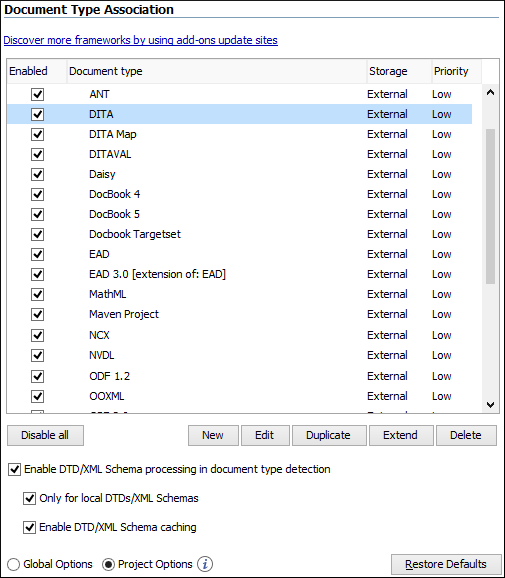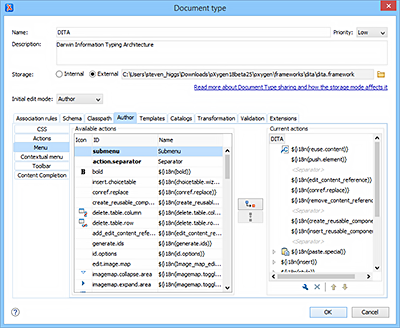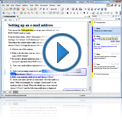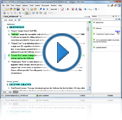Extensible XML Editor
Oxygen XML Editor uses the Document Type Association concept to provide ready-to-use support for a framework or XML language. The Document Type Association concept is used in Oxygen XML Editor to provide built-in support for the most popular XML frameworks (DITA, DocBook, XHTML, TEI, etc.) More importantly, it can be used to provide support for a custom user-defined framework that can be shared with others.

You can modify the built-in document type associations (frameworks) or create your own new associations to customize the editor according to your exact needs.
Default Schema
You can specify the default schema to be used for validation and content completion assistance for the documents that match a specific document type. This schema can be overwritten if a schema is specified inside the XML document itself. All the current schema languages are supported (DTD, XML Schema, Relax NG, ISO Schematron, ISO NVDL).
Default CSS Files
You can specify a set of CSS files, including a default CSS as well as alternates, that will be used to style Oxygen when editing in Author mode. You have the ability to select one main CSS to style the document and combine it with multiple alternate CSS styles that behave like layers.
Custom Actions
You can define custom actions in the Author mode that appear in toolbars, menus, or the contextual menu. These actions, in general, add support for inserting XML markup (lists, list items, tables, table rows, table columns, etc.) in the specific framework the document type describes. Oxygen provides a set of operations that can be used to implement most of the actions. If needed, you can also code your own operations in Java and use them to define your actions.
Document Templates
You can specify a folder where you have document templates stored. These templates will automatically appear in the new file dialog box, allowing you to easily create new documents of the defined document type.
XML Catalogs
For any document type, you can specify the XML Catalogs that resolve remote resources to local copies. This provides faster access to those resources (schemas, stylesheets, etc.) and also allows you to work offline without changing the XML documents to explicitly point to local resources.





